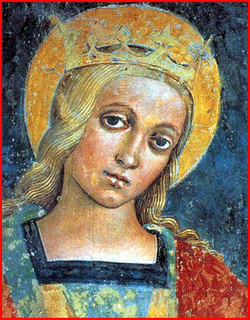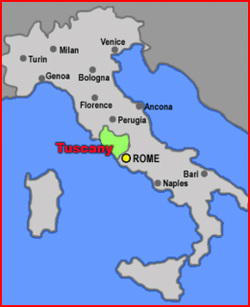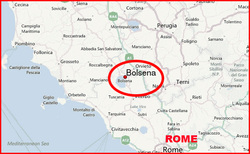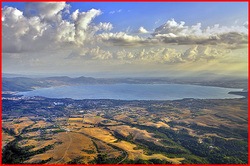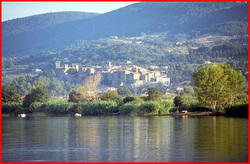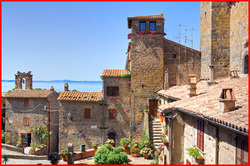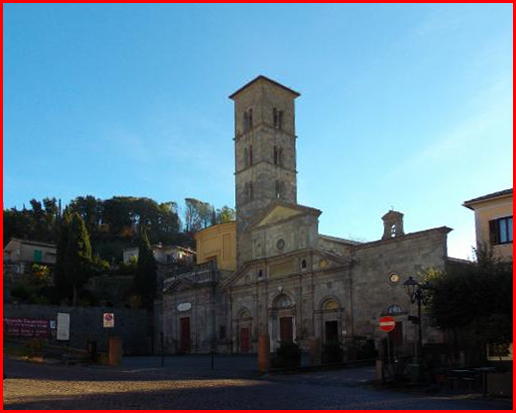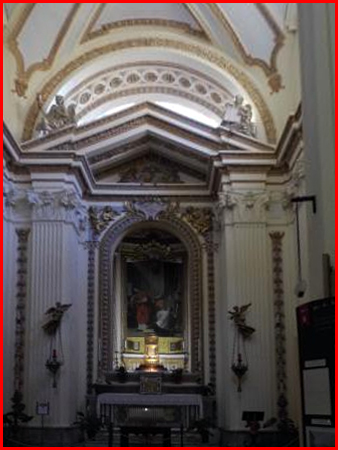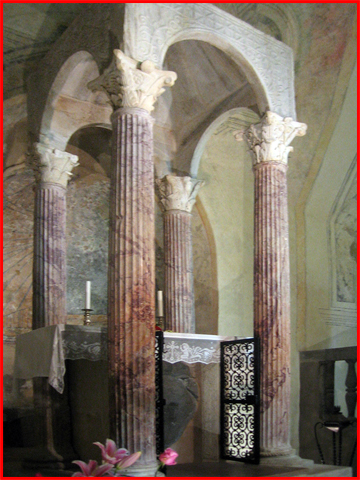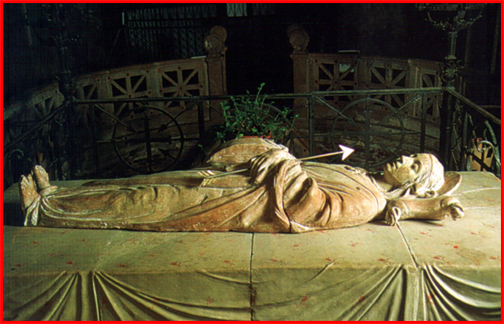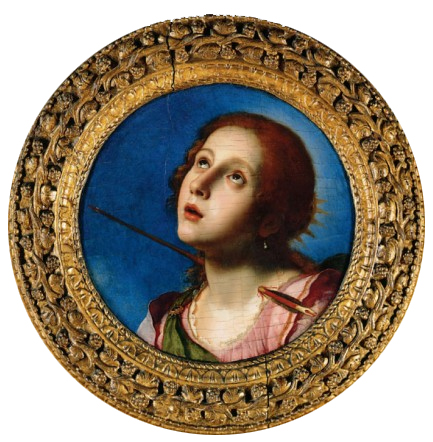| Devotion to Our Lady |
|
- Homepage
-
Daily Thoughts
- 2023 October Daily Thoughts
- Daily Thoughts Lent 2020
- Daily Thoughts for Advent 2019
- Daily Thoughts for October 2019
- Daily Thoughts for September 2019
- Daily Thoughts for August 2019
- Daily Thoughts for July
- Daily Thoughts for June
- Daily Thoughts for Easter 2019
- Daily Thoughts for Lent 2019
- Daily Thoughts for Christmas
- Daily Thoughts Easter 2022
- Sacred Heart
- Holy Ghost
-
Spiritual Life
- Holy Mass Explained
- First Friday Devotions
- First Saturday Devotions
- The Mercy of God
- Vocations
- The Path Everyone Must Walk >
- Gift of Failure
- Halloween or Hell-O-Ween?
- Ignatian Spiritual Exercises >
- Meditation is Soul-Saving
- Spiritual Communion
- Miraculous Medal
- Enrollment in Miraculous Medal
- St. Benedict Medal
- Holy Water
- Advice on Prayer
- Your Daily Mary
-
Prayers
- September Devotions
- Seven Sorrows of Our Lady
-
Novenas
>
- NV-Help of Christians
- NV-Nativity of Our Lady
- NV-Seven Sorrows
- NV- Sorrowful Heart
- NV-Pope St Pius X
- NV-La Salette
- NV-St Michael Archangel
- NV-Immaculate Heart
- NV-Assumption
- NV-Novena for Fathers
- NV-Novena for Your Mother
- NV-St Raphael Archangel
- NV-Souls in Purgatory
- NV-All Saints Day
- NV-Christ the King
- NV-Divine Motherhood
- NV-Guardian Angels
- NV-Rosary
- NV-Mirac Med
- NV- Imm Conc
- NV - Guadalupe
- NV - Nativity of Jesus
- NV-Epiphany
- NV-OL Good Success
- NV-Lourdes
- NV-St Patrick
- NV-St Joseph
- NV-Annunciation
- NV-St Louis de Montfort
- NV-OL Good Counsel
- NV-Last Supper
- NV-Passion
- NV-Pentecost
- NV-Ascension
- NV-Sacred Heart
- NV-Sacred Heart & Perpetual Help
- NV-Corpus Christi
- NV-OL of Perpetual Help
- NV-Queenship BVM
- NV-OL of Mount Carmel
- NV-St Mary Magdalen
- NV- Im Hrt
- August Devotions to IHM
- Immaculate Heart of Mary
- Litany of Dependence
- Prayers to St Mary Magdalen
- Prayers in Times of Sickness Disease & Danger
- Holy Souls in Purgatory
- Meditations on the Litany of Our Lady
- Special Feast Days
- Prayers to Mary (Mon-Sun)
- Litanies to Our Lady >
- Various & Special Needs
- Our Lady of the Rosary
- Our Lady of Mt. Carmel
- Our Lady of Perpetual Help
- Our Lady of Guadalupe
- Other titles of Our Lady
-
Rosary
- Downloads
- Consecration
- Easter Season
-
Holy Week
- Last Seven Words of Jesus >
- Characters of Passion >
- The Last Days of Christ
- Before Palm Sunday
- Palm Sunday
- Monday in Holy Week
- Tuesday in Holy Week
- Wednesday in Holy Week
- Holy Thursday (Last Supper)
- Holy Thursday (Agony & Arrest)
- Night Vigil with Christ
- Good Friday (Pilate & Herod)
- Good Friday (Way of Cross & Crucifixion)
- Saturday in Holy Week
-
Lent
- Ideas for Lent
- Daily Lenten Planner
- Daily Lenten Liturgy
- From Cold to Hot
- Lent with Aquinas
- Lent with Dom Gueranger
- Virtues for Lent
- History of Penance
- How Expensive is Sin?
- Confession of Sins
- Letter to Friends of the Cross
- Sermons for Lent
- Stations of the Cross >
- Lenten Prayers
- 7 Penitential Psalms
- Lenten Psalms SUN
- Lenten Psalms MON
- Lenten Psalms TUE
- Lenten Psalms WED
- Lenten Psalms THU
- Lenten Psalms FRI
- Lenten Psalms SAT
- Lenten Laughs
- Septuagesima
-
Christmas
- Epiphany Explained
- Suggestions for Christmas
- Food For Thought
- Christmas with Aquinas
- Christmas with Dom Gueranger
- Christmas Prayers
- Candles & Candlemas
- Christmas Sermons
- Christmas Prayers SUN
- Christmas Prayers MON
- Christmas Prayers TUE
- Christmas Prayers WED
- Christmas Prayers THU
- Christmas Prayers FRI
- Christmas Prayers SAT
- Twelve Days of Christmas >
-
Advent Journey
- Purgatory
- Christ the King
- Legion of Mary
- Scapular
-
Saints
-
Martyrs for the Faith
>
- Your Daily Martyr >
- All 365 Days of Martyrs
- Cristeros
- St Valentine & Valentine's Day
- Martyrs--Thomas Becket
- Martyrs--John the Apostle
- Holy Machabees
- Age of Martyrdom
- Carmelites of Compiegne
- Martyrs--Peter & Paul
- Martyrs--John the Baptist
- Martyrs--Andrew
- Martyrs--James the Great
- Martyrs--North American
- Martyrs--Seven Holy Sleepers
- Martyrs--Afra
- School of Martyrdom
- Martyrs--Christina
- Desert Saints >
- Saints for Sinners >
- Saints of Mary >
- History of All Saints Day
-
Martyrs for the Faith
>
- Precious Blood
- Synod 2023
-
Catechism
- Catechism Lesson 1
- Catechism Lesson 2
- Catechism Lesson 3
- Catechism Lesson 4
- Catechism Lesson 5
- Catechism Lesson 6
- Catechism Lesson 7
- Catechism Lesson 8
- Catechism Lesson 9
- Catechism Lesson 10
- Catechism Lesson 11
- Catechism Lesson 12
- Catechism Lesson 13
- Catechism Lesson 14
- Catechism Lesson 15
- Catechism Lesson 16
- Catechism Lesson 17
- Catechism Lesson 18
- Catechism Lesson 19
- Catechism Lesson 20
- Catechism Lesson 21
- Catechism Lesson 22
- Bible Study
-
Calendar
- Miracles
- Apparitions
- Shrines
- Prophecies
- Angels Homepage
- Hell
-
Church Crisis
- Conspiracy Theories
- Amazon Synod 2019 >
- Liberalism & Modernism
- Modernism--Encyclical Pascendi
- Modernism & Children
- Modernism--Documents
- The Francis Pages
- Church Enemies on Francis
- Francis Quotes
- Amoris Laetitia Critique
- Danger of Ignorance (Pius X)
- Restore all In Christ (Pius X)
- Catholic Action (Pius X)
- Another TITANIC Disaster?
- The "Errors of Russia"
- CRISIS PRAYERS
- Election Novena 2024
- The Anger Room
- War Zone
- Life of Mary
- Spiritual Gym
- Stupidity
- Coronavirus and Catholicism
- History & Facts
- Books
- Catholic Family
- Children
- Daily Quiz
-
Novena Church & Pope
- Day 01 Church-Pope Novena
- Day 02 Church-Pope Novena
- Day 03 Church-Pope Novena
- Day 04 Church-Pope Novena
- Day 05 Church-Pope Novena
- Day 06 Church-Pope Novena
- Day 07 Church-Pope Novena
- Day 08 Church-Pope Novena
- Day 09 Church-Pope Novena
- Day 10 Church-Pope Novena
- Day 11 Church-Pope Novena
- Day 12 Church-Pope Novena
- Day 13 Church-Pope Novena
- Day 14 Church-Pope Novena
- Day 15 Church-Pope Novena
- Day 16 Church-Pope Novena
- Day 17 Church-Pope Novena
- Day 18 Church-Pope Novena
- Day 19 Church-Pope Novena
- Day 20 Church-Pope Novena
- Day 21 Church-Pope Novena
- Day 22 Church-Pope Novena
- Day 23 Church-Pope Novena
- Day 24 Church-Pope Novena
- Day 25 Church-Pope Novena
- Day 26 Church-Pope Novena
- Day 27 Church-Pope Novena
- Day 28 Church-Pope Novena
- Day 29 Church-Pope Novena
- Day 30 Church-Pope Novena
- Day 31 Church-Pope Novena
- Day 32 Church-Pope Novena
- Day 33 Church-Pope Novena
- Day 34 Church-Pope Novena
- Day 35 Church-Pope Novena
- Day 36 Church-Pope Novena
- Day 37 Church-Pope Novena
- Day 38 Church-Pope Novena
- Day 39 Church-Pope Novena
- Day 40 Church-Pope Novena
- Day 41 Church-Pope Novena
- Day 42 Church-Pope Novena
- Day 43 Church-Pope Novena
- Day 44 Church-Pope Novena
- Day 45 Church-Pope Novena
- Day 46 Church-Pope Novena
- Day 47 Church-Pope Novena
- Day 48 Church-Pope Novena
- Day 49 Church-Pope Novena
- Day 50 Church-Pope Novena
- Day 51 Church-Pope Novena
- Day 52 Church-Pope Novena
- Day 53 Church-Pope Novena
- Day 54 Church-Pope Novena
- Penance Novena
- Daily WeAtheR Forecast
CLICK ON THE NAME OF THE SAINT YOU WISH TO VIEW
(not all links are activated at this time)
THE ROMAN MARTYROLOGY FOR EACH MONTH OF THE YEAR
| January | February | March | April | May | June | July | August | September | October | November | December | All 365 Days on One Page |
MARTYRED SAINTS
| Your Daily Martyr | The Age of Martyrdom (20th & 21st centuries) | The School of Martyrdom | St. Peter the Apostle | St. Paul of Tarsus | St. James the Great |
| St. Andrew | St. John the Baptist | The North American Martyrs | St. Christina | St. Afra | The Seven Holy Sleepers | The Cristeros of Mexico |
SAINTS OF MARY
| St. Louis-Marie de Montfort | St. Dominic | St. John Eudes | St. Maximilian Kolbe | St. Bernard | St. Alphonsus Liguori | St. Ephrem |
| St. Catherine Laboure | St. Bernadette | St. Bridget | St. Catherine of Siena | Pope St. Pius X |
DESERT SAINTS
| Saints of the Desert | St. Paul the Hermit | St. Anthony of Egypt | Desert Father Wisdom |
SAINTS FOR SINNERS
| St. Paul of Tarsus | St. Augustine | St. Mary Magdalen | Dismas the Good Thief |
(not all links are activated at this time)
THE ROMAN MARTYROLOGY FOR EACH MONTH OF THE YEAR
| January | February | March | April | May | June | July | August | September | October | November | December | All 365 Days on One Page |
MARTYRED SAINTS
| Your Daily Martyr | The Age of Martyrdom (20th & 21st centuries) | The School of Martyrdom | St. Peter the Apostle | St. Paul of Tarsus | St. James the Great |
| St. Andrew | St. John the Baptist | The North American Martyrs | St. Christina | St. Afra | The Seven Holy Sleepers | The Cristeros of Mexico |
SAINTS OF MARY
| St. Louis-Marie de Montfort | St. Dominic | St. John Eudes | St. Maximilian Kolbe | St. Bernard | St. Alphonsus Liguori | St. Ephrem |
| St. Catherine Laboure | St. Bernadette | St. Bridget | St. Catherine of Siena | Pope St. Pius X |
DESERT SAINTS
| Saints of the Desert | St. Paul the Hermit | St. Anthony of Egypt | Desert Father Wisdom |
SAINTS FOR SINNERS
| St. Paul of Tarsus | St. Augustine | St. Mary Magdalen | Dismas the Good Thief |
THE MARTYRDOM OF ST. CHRISTINA
(Feast day July 24th)
(Feast day July 24th)
We have all heard the saying: "The good die young!" Well, though it may not always be true, it is certain that martyrdom is offered to the young as well as the old. Even babies are martyred for Christ or the Faith, as we see in the case of the Holy Innocents of Bethlehem. Older children are also martyred for Christ or the Faith, and in this story of St. Christina, we see a beautiful example that we present to our children today, for they may well be invited to follow in her footsteps. Will they have the courage to become martyrs? Well, of course, that is a work of grace. However, we can merit such a grace by our fidelity to the Faith in little things and so accustom ourselves, and out children, to say NO to the world, despite the world's insults, mockery, ridicule and threats. For he who is faithful in little things, will be rewarded by the grace to be faithful in greater things, and "Greater love than this no man hath, that a man lay down his life for his friends" (John 15:13).
|
Those who consider the life and the different kinds of martyrdom of this holy Virgin, and do not remember what we said in the preface to these volumes, may easily be tempted to suppose that much of what we relate is impossible, and the work of imagination. But as the whole history is founded on indubitable and unobjectionable testimony, we shall relate her life plainly and faithfully, remembering that God chose this holy Virgin, in preference to innumerable others, to honor and glorify His holy faith among the blind heathen, to confound the tyrants and persecutors of Christendom, and to reveal to the world the wonders of His Omnipotence.
The Saint was a native of Tyro, in Tuscany, where her father Urban, was prefect. He was a sworn enemy to the Christians, and hardly passed a day on which he did not call some one of the faithful into his presence, and doom him to suffering and to death. Christina, who on seeing this, observed at the same time how fearless and happy the Christians were during their torments, was curious to know what kind of men they were, why they were thus persecuted, and what gave them strength to bear so uncomplainingly, nay, so cheerfully, the sufferings they endured. When instructed about all this, the grace of God worked so strongly in her, that she felt an intense desire to be, by means of holy Baptism, numbered among the Christians. She rested not until her desire was fulfilled, and at the age of nine years, she received holy Baptism and with it the name of Christina. Her zeal was greater than could have been expected at her tender age. She secretly took her father's idols, composed of gold and silver, and breaking them into pieces with the assistance of others, divided them among the poor. Her father, almost beside himself with rage when he was informed of this, resolved to avenge, with his daughter's blood, the dishonor done to the gods, but not until he had endeavored to win her by kindness from the faith of Christ. Hence he called her to him and all alone with her, urged her, with many manifestations of kindness and at last with menaces, to forsake Christ. Christina, however, said fearlessly: "Do with me whatever you like, my dear father; you can take my life, but the faith of Christ you have no power to tear out of my heart. My Savior will strengthen me to suffer patiently all that you have threatened." Scarcely had she spoken these words, when the inhuman father commanded the executioners whom he had called to scourge her most cruelly over her whole body. Christina gave no signs of pain during this suffering. After this, the tyrant ordered that the wounds she had received should be enlarged with iron combs and whips with sharp points, which was done with such ferocity, that whole pieces of flesh were torn from the tender body of the Virgin. Christina stood at first immovable with her eyes turned to heaven, and then praised and thanked the Almighty for so visibly aiding her to bear her pains. The father—who was no father, but a savage beast—still more embittered by her conduct, ordered an iron wheel to be brought. Christina was then bound upon it, oil was poured over her, and then the wheel was raised in such a manner that it could be turned. When this was done, a fire was prepared under it, in order slowly to roast the maiden. Almighty God, however, so effectually strengthened His heroic confessor, that she sang loudly during this terrible torment. She remained unhurt by the flames, while many of the spectators were seized by them and severely injured. The tyrant, astonished at this miracle, would still not relent, but ordered her to be dragged to a dungeon, with the intention to renew her torture on the following day. Hardly had Christina entered the dungeon, when an angel of the Most High appeared to her and healed her wounds, encouraged her to persevere, and gave her assurance of divine assistance. When her father was informed that she was so miraculously healed, he immediately sent some executioners into the prison, with orders to tie a large stone around her neck, and cast her into a lake, so that nothing further might be seen or heard of her. But the same angel who had visited her the day before, carried her safely to the shore. Christina was sent again to the dungeon, and Urban thought of new ways and means to torment her. But when morning dawned, he was found dead in his bed. He had probably died from a stroke of apoplexy, brought on by his uncontrolled anger. Thus God punished, by a sudden and unhappy death, his inhuman wickedness. Christina was much more pained by the eternal destruction of her father, than by all the tortures she had suffered. The latter, however did not end with her father's death : for Dio, who was Urban's successor, not only in his functions, but also in his cruelty, had Christina brought before him, and as she remained firm in her refusal to abandon the Christian faith, he commanded an iron cradle to be constructed and filled with boiling oil and tar, into which Christina should be cast. The heroine evinced not the slightest fear of this instrument of torture, but signing herself with the sign of the Cross, she said to the soldiers who cast her into the cradle: " Well have you reason to lay me like a child in a cradle; for it is hardly a year since I was born in holy baptism." She remained in it a considerable time ; but when they at length perceived that she neither felt pain nor was in the least harmed, they took her out and brought her into the temple of Apollo, commanding her to sacrifice to him. No sooner, however, had Christina set foot in the temple, than she made the sign of the Cross, and the idol, falling from the altar upon the ground, was broken into a thousand pieces. At the same moment, the prefect Dio, struck with apoplexy, sank dead upon the earth. The soldiers, who had brought Christina into the temple, were terrified by this twofold wonder, and freeing the Virgin from her fetters, they cried aloud: "Truly, the God of the Christians is the only true God." Many of those present abandoned idolatry and became converts to the Christian faith. When Julian, Dio's successor, heard of Christina and the sudden end of his predecessor, he feared that the people might accuse him of cowardice, if he did not continue the process against a weak woman. Hence he said to her: "Thou must either immediately sacrifice to the gods, or I will cast thee alive into a burning furnace." Christina refused more earnestly than ever to obey, and Julian ordered her to be cast into the furnace, which meanwhile had been prepared. The order was executed, and Christina remained in it until the fifth day, unharmed, as, in ages past, the three companions of Daniel had been in the furnace of Babylon. She also imitated these in constantly praising God and giving thanks for so many mercies received. Julian ascribed this miracle to magic, and following the advice of a magician, he had Christina thrown into a dark cavern, into which this magician had charmed a great many of the most venomous animals. The holy Virgin once more signed herself with the cross, and none of the animals touched her. She stood in the midst of them, giving praise to the Almighty, her Protector. To prevent this they tore out her tongue, at the command of Julian; but even then she ceased not praising God. This new miracle converted many to the Christian faith, and the tyrant commanded them at length to fasten her to a stake and pierce her with arrows. While they bound her fast, her heart was filled with the desire to behold in Heaven Him for whom she had suffered so much on earth. She therefore called on God to impart to her the long-desired crown of martyrdom. Her prayer was answered, for one of the arrows found the way to her heart, and her heroic soul went to Him by whose mighty assistance she had conquered three tyrants. Her glorious death took place in the year of our Lord, three hundred. We conclude the life of this Saint with the words of St. Augustine: "When we consider the perseverance of a human being, tortured in so many ways, it seems incredible. But when we think of the omnipotence of the Most High, the relation will not be deemed impossible." PRACTICAL CONSIDERATIONS 1. St. Christina made use of the opportunity offered her to instruct herself in the new faith, and thus was sooner convinced of its truth. Those tyrants by whom she was tormented had the same opportunity to instruct themselves, but used it not. They therefore did not become convinced of its truth, but remaining in their error, became more hardened in their wickedness, and were thus lost to all eternity; while Christina was saved by the true faith. So much depends on rightly using opportunities which lead to the path of Heaven. How despairing must now be the grief of those tyrants to think that they had the opportunity, but used it not to their salvation. It is now lost to them, and will never again return. Oh! how sad! Compare with this the happiness which St. Christina now enjoys, because she made use of the opportunities God gave her. You have also, in your station, opportunities enough to do good and to work out your salvation. Why do you not make better use of them? Believe me, the greatest pain that one endures in hell is to think: "I could have saved my soul, escaped Hell, and gained Heaven. I had time and opportunity to use the means necessary for it; but I have forfeited them. I have no more time and opportunity now, and shall have them nevermore." "Oh! how dreadful will be the torment of the damned when they remember that they did not use the opportunity they had to correct their lives, and thus have precipitated themselves into everlasting punishment ;" says St. Chrysostom. If you wish not to experience these torments yourself, improve better in future the opportunities which are offered to you. 2. St. Christina, a tender virgin, scarcely ten or eleven years old, suffered for the true faith such terrible tortures, not only with invincible fortitude, but with happiness, praising God, during her martyrdom. What do you suffer for the love of God, and what is your conduct during your suffering? Your suffering does not deserve the name, when compared with that of St. Christina, and still your conduct is far from that of this holy martyr. Can so different a suffering expect an equal glory in heaven, or do you perhaps think that you can enter heaven without having suffered, although the Saints took possession of it only by suffering ? You yourself will hardly have the heart to affirm this. Oh! then resolve to bear your small trials with greater patience. Murmur not against the Almighty, but praise His wisdom and give thanks to Him that He leads you by the same path by which He led His Saints to heaven, and on which walked even Christ our Lord. "Ought not Christ to have suffered these things, and so to enter into his glory?" (Luke 25) "All that have pleased God passed through many tribulations, remaining faithful." (Judith 8) Why then would you seek another way than that of the cross? " The entire life of Christ consisted of crosses and martyrdom, and you desire nothing but peace and pleasure in this world?" Thus speaks the pious Thomas a Kempis; while St. Bernard says : "The only true path that leads us to heaven is the cross and suffering." |
Web Hosting by Just Host

